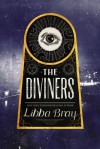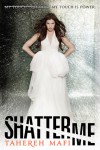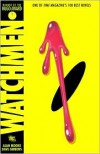Currently reading
A Clash of Kings
The Diviners
The Book of (Even More) Awesome
Dear Bully: Seventy Authors Tell Their Stories
Shatter Me
Cress
Truth & Dare: 20 Tales of Heartbreak and Happiness
Watchmen
French Lieutenant's Woman (Vintage Classics)
 Although this novel was not written in the Victorian era, it is set there and deals with many aspects of that era. In essence, the novel is about a man named Charles who is often considered honorable and has made an engagement to Ernestina Freeman, yet finds himself very attracted to a woman know throughout Lyme Regis (where the novel is set) as The French Lieutenant's Woman. This novel deals a lot with social conventions, good vs. bad and perception.I liked Fowles' writing. There were some things that were very poignantly phrased and made excellent points--I would put a quote in here but it could potentially spoil part of the book. As he writes, Fowles sometimes gets sidetracked, spending an entire chapter referencing an entire chapter referencing Thomas Hardy's work, taking only the last paragraph of the chapter to reference why it is important to the story he is telling. I can see how some people may get frustrated and see this as a lack of focus. I actually thought it was very interesting and it helped to draw me in. Another interesting aspect of this book is that Fowles occasionally steps aside and discusses his role as the author and what it means to be able to change the story. I thought this was really cool because it got me thinking about why things happen, whether it's in fiction or real life.I really liked the storyline of this book, which has a lot to do with social conventions (i.e. surrouding marriage, romance, relationships). I found it very thought provoking and I also have to say that I always admire characters who don't necessarily conform, whether in thought or action, to those conventions, which is important to me because it makes me think of how our society would be different if social conventions were a constant and never evolved. I also liked how important the idea of perception and appearance to society was in this novel, because I think those things are important for us as individuals to consider in many aspects of our life.If you want to read something thought provoking and are into Victorian literature (or if just one of thoe statements apply), I'd highly recommend this.
Although this novel was not written in the Victorian era, it is set there and deals with many aspects of that era. In essence, the novel is about a man named Charles who is often considered honorable and has made an engagement to Ernestina Freeman, yet finds himself very attracted to a woman know throughout Lyme Regis (where the novel is set) as The French Lieutenant's Woman. This novel deals a lot with social conventions, good vs. bad and perception.I liked Fowles' writing. There were some things that were very poignantly phrased and made excellent points--I would put a quote in here but it could potentially spoil part of the book. As he writes, Fowles sometimes gets sidetracked, spending an entire chapter referencing an entire chapter referencing Thomas Hardy's work, taking only the last paragraph of the chapter to reference why it is important to the story he is telling. I can see how some people may get frustrated and see this as a lack of focus. I actually thought it was very interesting and it helped to draw me in. Another interesting aspect of this book is that Fowles occasionally steps aside and discusses his role as the author and what it means to be able to change the story. I thought this was really cool because it got me thinking about why things happen, whether it's in fiction or real life.I really liked the storyline of this book, which has a lot to do with social conventions (i.e. surrouding marriage, romance, relationships). I found it very thought provoking and I also have to say that I always admire characters who don't necessarily conform, whether in thought or action, to those conventions, which is important to me because it makes me think of how our society would be different if social conventions were a constant and never evolved. I also liked how important the idea of perception and appearance to society was in this novel, because I think those things are important for us as individuals to consider in many aspects of our life.If you want to read something thought provoking and are into Victorian literature (or if just one of thoe statements apply), I'd highly recommend this.










